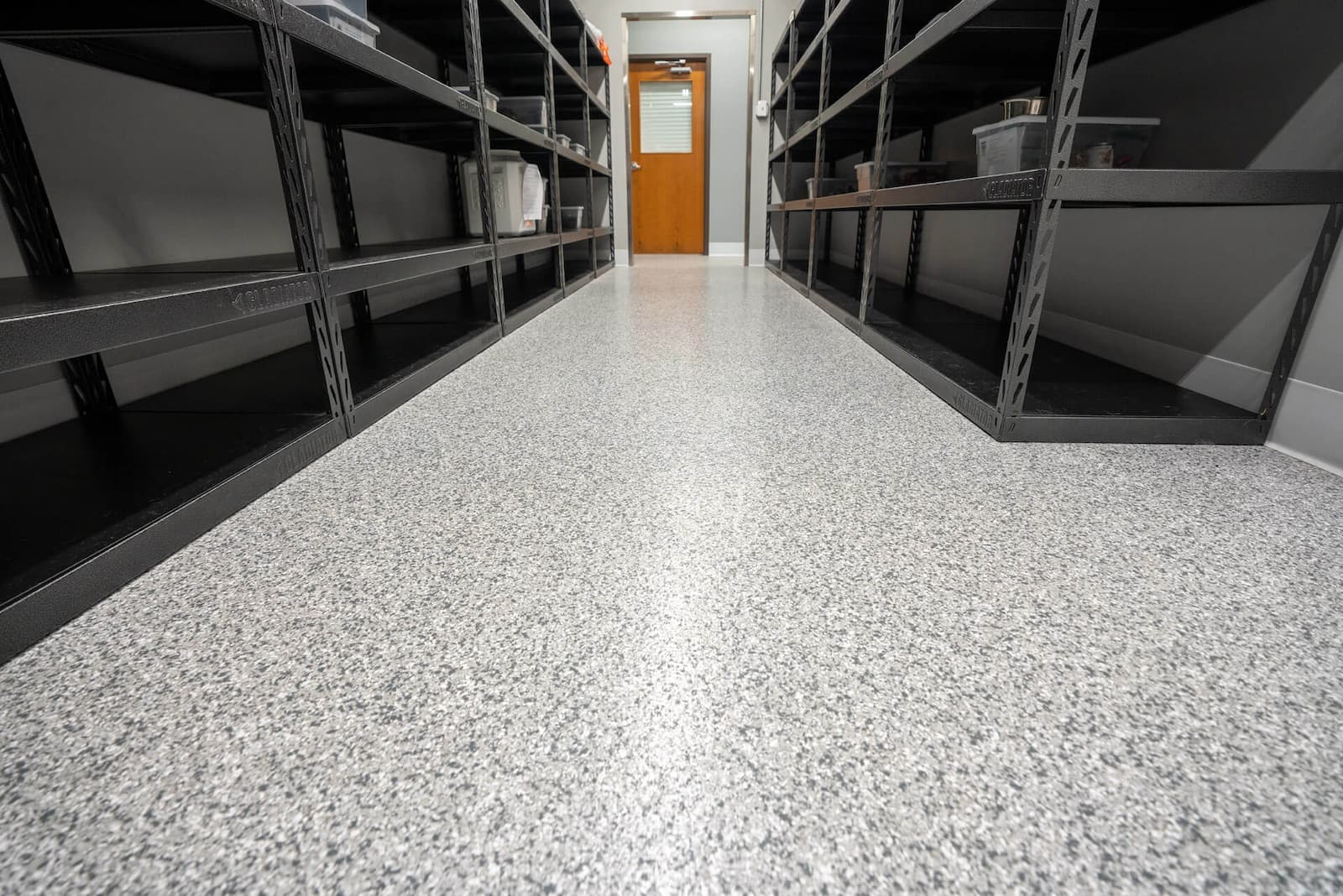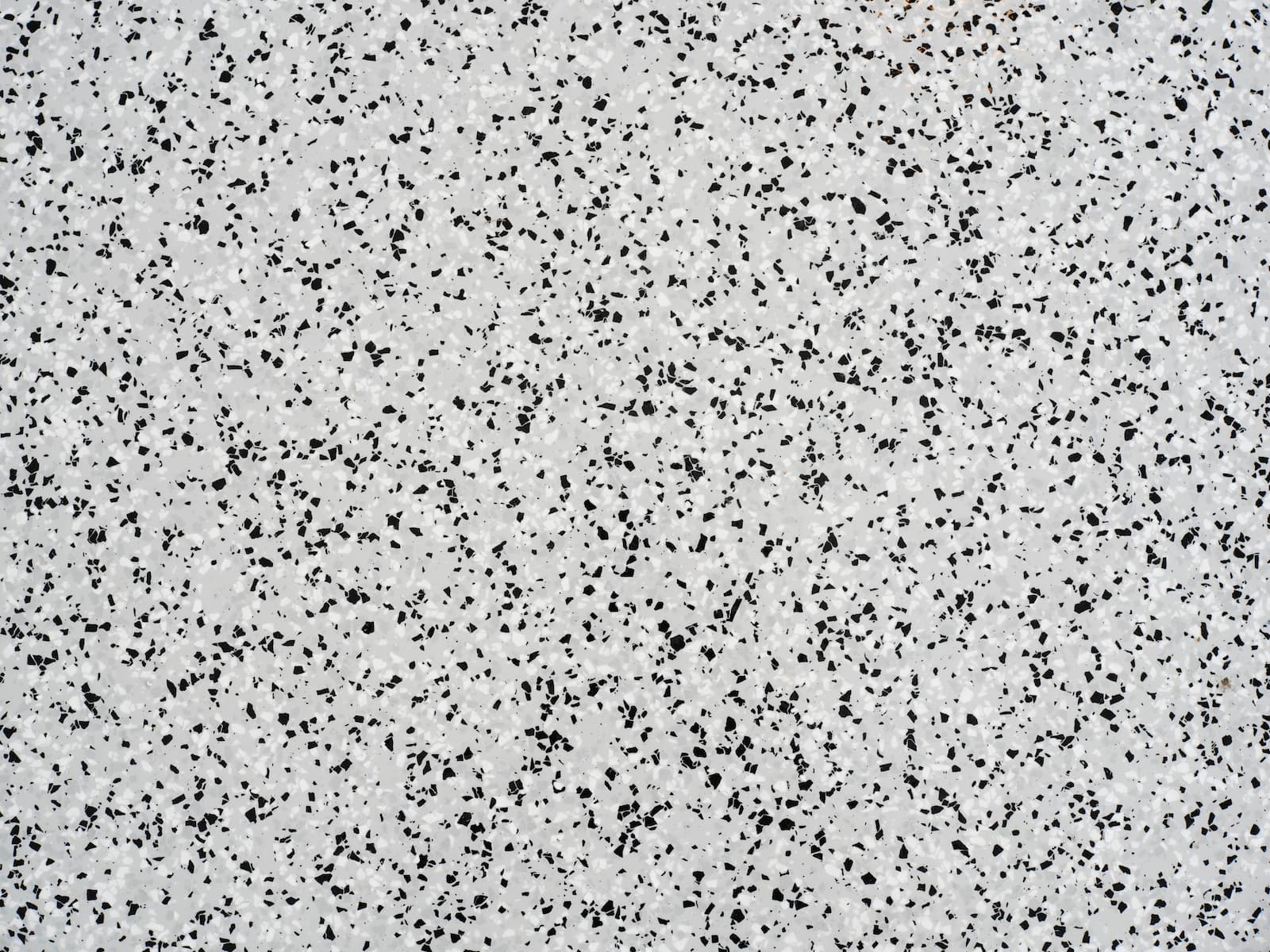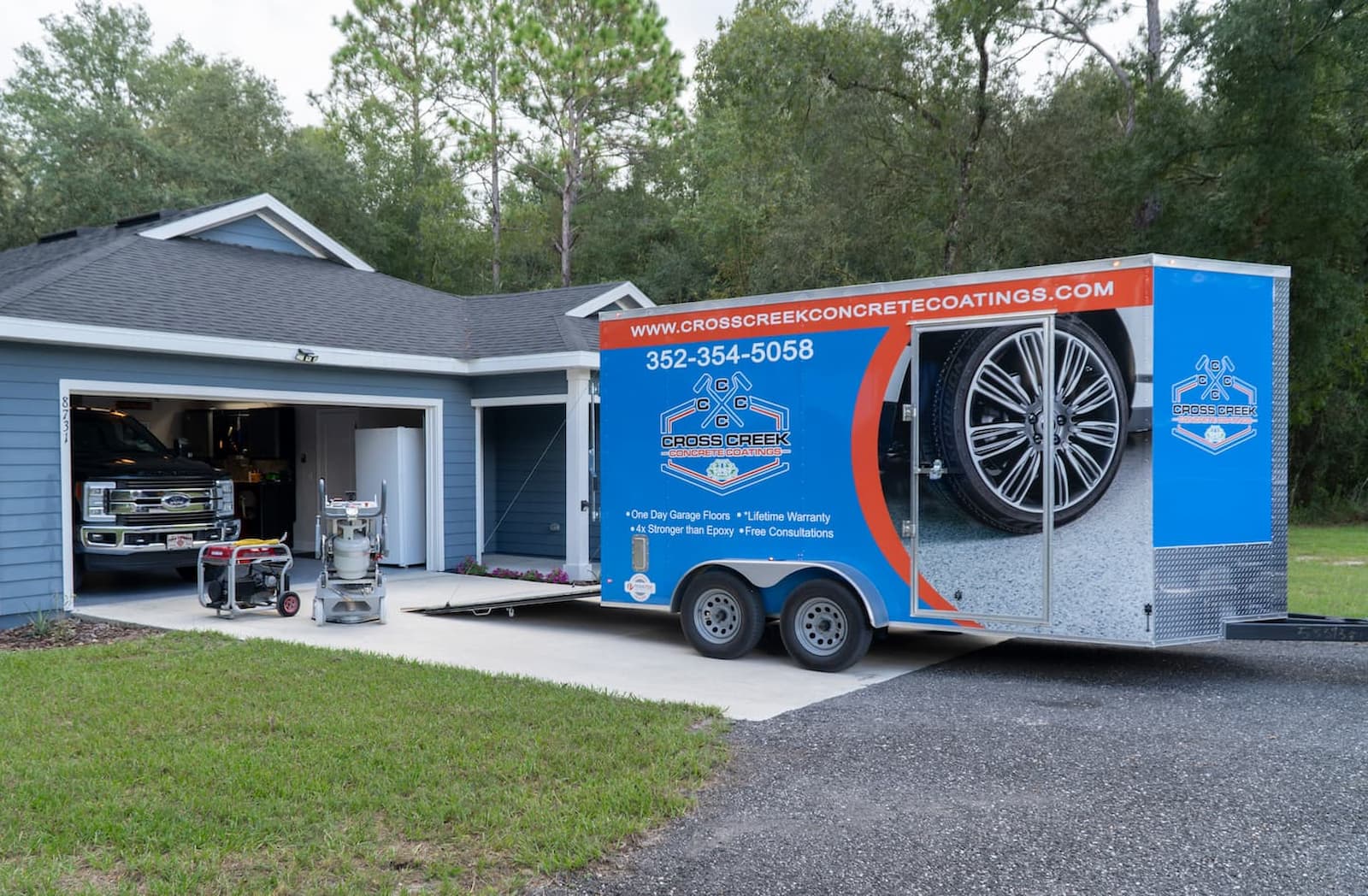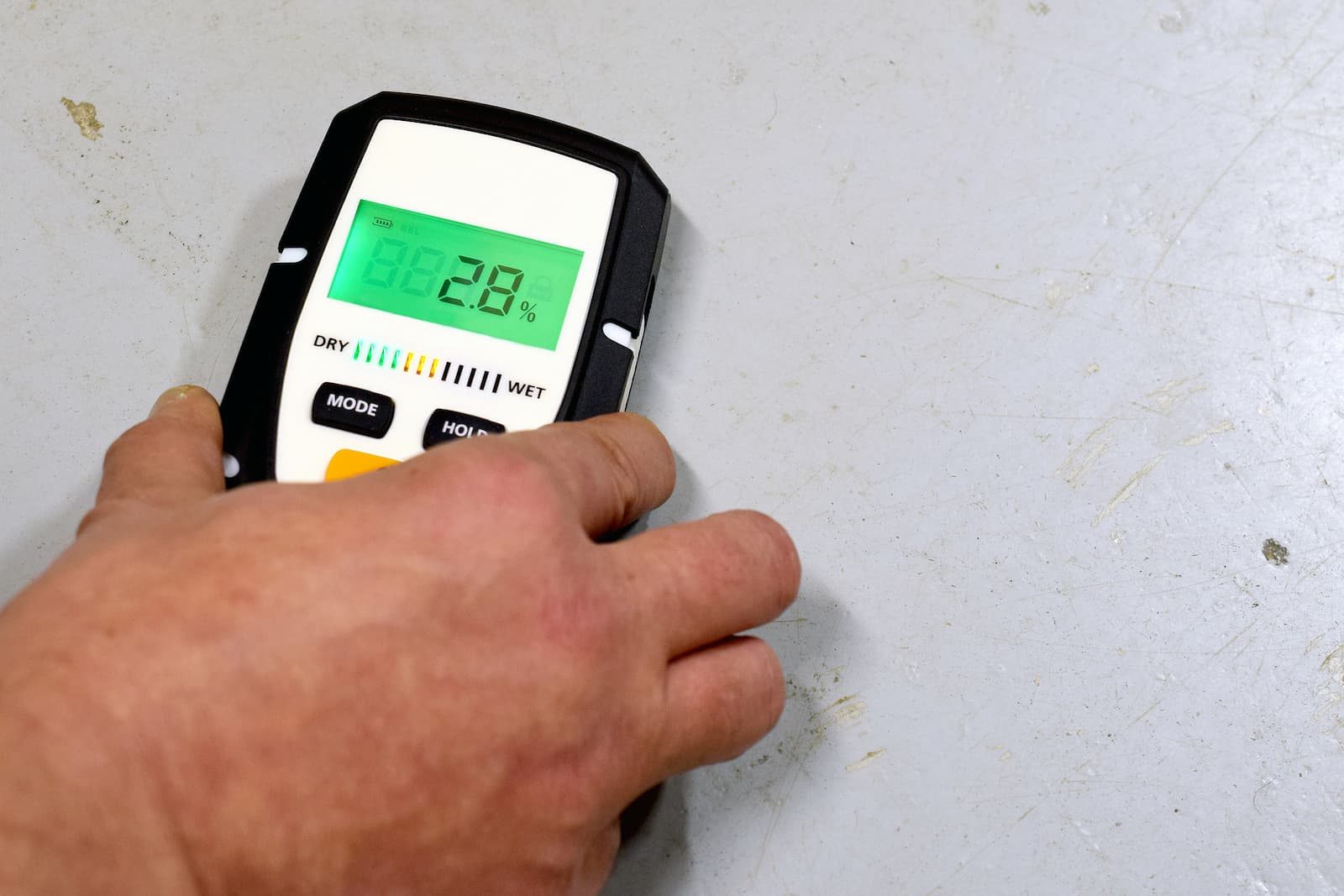Ensuring Long-Lasting Results: Why Testing Moisture in Concrete Before Coating is Crucial
At Cross Creek Concrete Coatings, we believe in getting things right the first time. That means when it comes to your concrete surfaces—whether it’s a garage, patio, or pool deck—preparation is key! One critical step that often gets overlooked is testing the moisture levels in your concrete before we apply any coating. Trust us, this one little detail can make all the difference between a coating that lasts and one that doesn’t quite make the cut.
Let’s dive into why testing moisture in concrete is so important and how it sets the stage for a flawless finish that will stand the test of time.
Why Testing Moisture Levels in Concrete is a Must
Before we even think about applying a concrete coating, we need to make sure your surface is in top shape. The moisture content of the concrete can be a game-changer when it comes to how well the coating adheres. You see, if the concrete is too wet, the coating may not stick properly, which means you could end up with peeling or bubbling down the road—and no one wants that!
In short, moisture can sneakily sabotage even the best coatings, leading to premature failure and expensive repairs. That’s why we always test first—it’s a simple yet crucial step to ensure your coating is set up for success.

How We Test for Moisture
At Cross Creek, we use a trusty tool called a moisture meter to check the moisture content in your concrete. This little device tells us exactly how much moisture is hiding beneath the surface, giving us a clear picture of whether or not your concrete is ready for coating.
If the moisture content is too high, don’t worry—we’ve got a few tricks up our sleeves to help dry it out. Sometimes it’s as simple as running a fan, using a dehumidifier, or just opening up windows and doors to let some fresh air in. Once the concrete is dry and the moisture levels are where they need to be, we’re ready to roll with the coating.
What Happens If You Skip This Step?
Skipping this step would be like building a house without a proper foundation—it just won’t last. High moisture levels can weaken the bond between the concrete and the coating, causing issues like peeling or blistering, which can be both unsightly and expensive to fix.
By taking the time to dry out the concrete properly, we ensure that your new coating will adhere perfectly and stay looking great for years to come.

Epoxy vs. Polyurea: Which Coating is Best for Moisture-Tested Concrete?
Now that we’ve tested the moisture and your concrete is ready, it’s time to choose the right coating. At Cross Creek, we offer both epoxy and polyurea coatings, but they’re not created equal! Let’s compare them to see which one comes out on top:
- Impact Resistance:
- Epoxy might be a common choice, but when it comes to standing up to heavy use, its impact resistance is lacking. That means over time, you might see chips, cracks, or wear and tear in high-traffic areas.
- On the other hand, our Penntek polyaspartic polyurea coatings are designed with high impact resistance, making them a better option if you want a floor that can handle the daily grind without showing signs of wear.
- Stretch & Flexibility:
- Concrete surfaces, especially floating slabs, are built to flex and shift slightly with the Earth beneath them. Epoxy doesn’t do a great job at moving with these shifts, which can cause cracking.
- Polyurea, however, is much more flexible. It moves and flexes with the concrete, ensuring long-term adhesion and durability.
- Chemical & Stain Resistance:
- Nobody wants to deal with stains that won’t budge. While epoxy can resist some stains, it doesn’t stand a chance against harsh chemicals and spills.
- Our polyurea coating, however, is chemically resistant. Spills are no big deal—just grab a towel and some general cleaner, and you’re all set.
- UV Stability:
- Sunlight can be the enemy of a lot of coatings, causing yellowing or fading over time. This is a major downside of both standard polyurea and epoxy coatings when exposed to UV rays.
- But with Penntek polyurea, UV stability is built right in, meaning no yellowing or fading—even after years of sun exposure. Whether it’s your garage, driveway, or pool deck, our polyurea coatings are up for the challenge.

Moisture Testing and the Right Coating—The Ultimate Combo
At the end of the day, testing the moisture content of your concrete before applying a coating is one of the smartest moves you can make for the long-term durability of your floor. When combined with the right coating—like our Penntek polyaspartic polyurea—you’ll have a floor that not only looks great but can stand up to whatever life throws at it.
Ready to give your concrete the protection it deserves? Contact Cross Creek Concrete Coatings today and let’s get started on your next project. We’ll make sure your surface is prepped, moisture-tested, and coated with the best materials for long-lasting, beautiful results.

